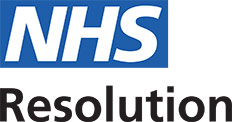Our vision
Our vision is to be at the vanguard of innovation in dispute resolution. We will share our expertise to reduce the number of disputes that come to us in the first place. Where disputes do come to us, our ambition is to keep patients and healthcare staff out of formal processes and to avoid unnecessary pain, distress and cost in every case. We will seek to ensure that when litigation is required it is by choice and not by default.
In all of our services, whether Advice, Appeals or Claims, we aim to achieve a fair resolution of the issues in a timely way. Fair resolution involves a careful weighing up of the facts, often involving differing interests, views, conflicting accounts and competing priorities. We have unmatched expertise and experience in navigating these issues on behalf of the NHS and want to go further, drawing on our significant progress in areas such as mediating healthcare disputes while taking every opportunity to innovate further.
Our aims
We will develop a closer and more supportive relationship with staff responsible for responding to incidents, concerns, complaints and claims to help them to respond more effectively when things go wrong. We will do this by:
- Continuing to promote the principles of a just and learning culture as the optimum environment in which resolution and learning can occur, based on Being Fair.
- Enabling healthcare organisations to gain new insights on their approach to identifying, managing and resolving matters fairly and effectively – both to reinforce and disseminate best practice as well as assist organisations whose approach requires improvement.Using our expertise and partnerships to set standards/protocols in respect of incident, complaints and claims handling.
- Sharing best practice and training in local resolution techniques while exploring the potential for incentives to further influence improvement.
- Taking action where we identify issues of concern, escalating matters to our system partners where necessary.
We will review our resolution services to improve the experience for both patients and healthcare staff by:
- Considering how all of our resolution processes can be improved through working with patient groups, healthcare staff and others such as the royal colleges to deliver a better experience.
- Continuing to resolve claims fairly, undertaking a thorough investigation and assessment of the evidence which considers each party’s perspective. We will reach decisions in a timely way without compromising the rigour of our assessment. Where necessary, we will take cases to court to challenge excessive or unmeritorious claims or to determine points of law. However, this will be litigation by choice rather than by default.
- Building on the success of the Covid-19 claims handling protocol, we will work even more collaboratively with patients’ lawyers, formalising the best elements of the protocol so this becomes ‘business as usual’ for how we work together.
- Innovating further in the area of claims dispute resolution, extending the use of early neutral evaluation, resolution summits, case stock-takes and remote mediations.
- Deterring fraudulent claimants by working with NHS Counter Fraud Authority and, where necessary, pursuing custodial sentences in order to protect public funds.
- Addressing issues concerning healthcare practitioner performance at the earliest possible stage, providing empathetic, respectful and expert assistance to navigate complex issues.
- Acting as an independent advisor to all parties involved in complex practitioner performance concerns, whether they are healthcare organisations, teams or individual doctors, dentists or pharmacists.
- Being transparent, robust and impartial in our Appeals service decision making and responsive to the implications of case law and judicial review outcomes. As an impartial adjudicator, our Appeals service has a different approach to resolution to other service areas. However, it shares the aim of setting out clearly what good local dispute resolution looks like, so as to prevent primary care contracting disputes being escalated to it.
What will success look like?
- Best practice in the management of healthcare complaints, concerns, incidents and claims is freely available, regularly accessed and implemented by local organisations, improving consistency across the NHS.
- There is a reduction in claims that could have been avoided through improved handling in the post-incident/pre-claim period.
- Compensation claims only enter litigation after all other avenues to work collaboratively and constructively to resolve the dispute have been exhausted.
- Interventions previously regarded as ‘alternative’ methods of dispute resolution, i.e. other than formal court processes, are considered mainstream.
- Fair resolution is delivered at a reduced cost while appreciating that other measures, such as the patient and staff experience, are also important. For example, the right outcome for a patient may not involve financial compensation alone, but rather having the opportunity to be heard.
- Patients and healthcare staff have greater input into our resolution approaches so that their unique perspectives help us to continually improve our processes.
- There is a reduction in formal performance management processes across the NHS (such as instigating exclusion) as a result of issues being addressed at an earlier stage through more effective preliminary analysis. In addition, practitioners report processes as ‘fair’ at evaluation.
- Our Appeals service engages with NHS England and NHS Improvement to improve the local decision making around primary care contracting. Interested parties are provided with external training and/or access to resources to support early resolution of contracting disputes.
- Timely publication of all Appeals service decisions which clearly articulate outcomes, new approaches or policy based on case law and judicial guidance.

Page last updated on:






